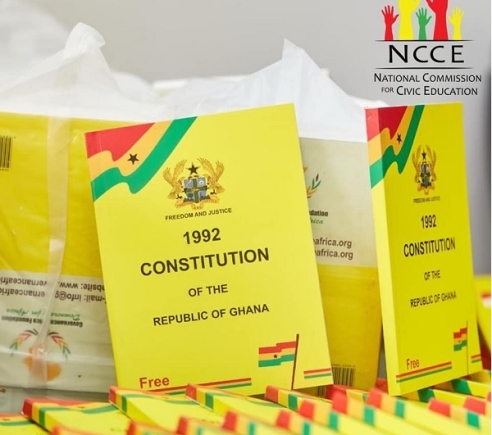It is important, sometimes, to state a caveat when commenting on some issues bothering our society, at least to avoid mischievous interpretations. My caveat here is that a regime is technically different from a government. While a government’s actions and inaction can have an impact –negative or positive- a regime transcends a government.
There are currently two interesting political developments in Ghana that suggest that we are the same people but treated differently.
First, the Minority in Parliament has given a firm notice that anytime their colleague member for Assin North is to appear before the Accra High Court for his ‘disputed daily trial’, they will accompany him in a show of solidarity, now covering all their colleagues standing trial in the law court. The parliamentarians know their Standing Orders better. But what is critical is the impact of their decision on parliamentary business which they are paid to do.
Second, many Members of Parliament on the majority side are all over the country canvassing for votes for their preferred candidates in the ongoing presidential primary of the New Patriotic Party (NPP). Ministers who are part of this may have a genuine excuse for not always attending sittings in Parliament and the Platonic ‘medicinal lie’ can sufficiently cover them. However, NPP MPs who are also not in Parliament for the job that their constituents sent them to go and do are in the same bracket with the National Democratic Congress (NDC) MPs. This is also affecting parliamentary business.
In both scenarios, the legislators will have their way out and no one will punish them in the end. Could this standard be applied to other people in Ghana?
Principles of state policy
Interestingly, we are told in Article 34 of the 1992 Constitution that the Directive Principles of State Policy shall guide all citizens, Parliament, the President, the Judiciary, the
Council of State, the Cabinet, political parties, and other bodies and persons in applying or interpreting the Constitution or any other law and in taking and implementation of any policy decisions, for the establishment of a just and free society. What I get from the above is that there is supposed to be fairness in everything we do but the powerful have a way of being ‘sorted out’.
It is increasingly becoming clearer that the law appears respecter of persons contrary to the popular claim that the law is no respecter of persons. Well, some believe that even in heaven, there are stages. But professing equality and practicing partiality is inimical to the growth of a harmonious society.
The politician, like the policeman on the road, is easier to accuse of wrongdoing, justifiably, because we see them more often. The police bail regime, for instance, has been with us for some time now. Bail has always been free yet we know it is free for the rich and the knowledgeable. Is it also free for the poor in our society? So even within one service, different treatment for same offence. The reality, however, is that we are all likely sinners who are bent on judging others for sinning differently. While this may be ‘normal’ for some, it is certainly not normal when leaders openly show partiality and the law appears to support them. Well, this is how it appears to many.
Meritocracy
We may have different preferences ideologically, culturally, or morally, but our oneness is measured by how meritocracy is applied. The question is how do we get there?
Since charity, they say, begins at home, permit me to assume for the purpose of this argument that the home here is the political class. Yes, because they are in charge of the authoritative allocation of our resources, including human resources, much is required of them.
The show of power between the ruling NPP and the opposition NDC may be part of the democratic process since it is unthinkable to imagine a democracy where everything is smooth devoid of acrimony. However, the ultimate loser is the already impoverished tax payer. Surely, neither the NPP nor the NDC will lose in the drama that is having a negative toll on the business of
Parliament. The judiciary too is not the loser in this case.
It is the suggestion that diplomacy takes precedence over power politics in this case. The art, tact, or even science of using peaceful ways to solve a dispute should not be a major task. We are made to understand that similar tussle between the two sides in Parliament over the e-levy and related matters contributed to the current economic mess which, the actors in the three arms whose pay cheques are bigger, feel the impact less.
It is, therefore, important for other stakeholders in our state to take a keen interest in what is going on among the legislature, the judiciary, and the executive. They must appreciate compromises since they all have the capacity to demonstrate superiority at any time.
A case certainly exists for legislators to right some of the wrongs but what we have seen so far shows that legislations are necessary to settle disputes and scores, but not sufficient to ameliorate the real impact on the livelihood and well-being of our people.
The writer is a lecturer at the Department of Political Science Education,
University of Education, Winneba

